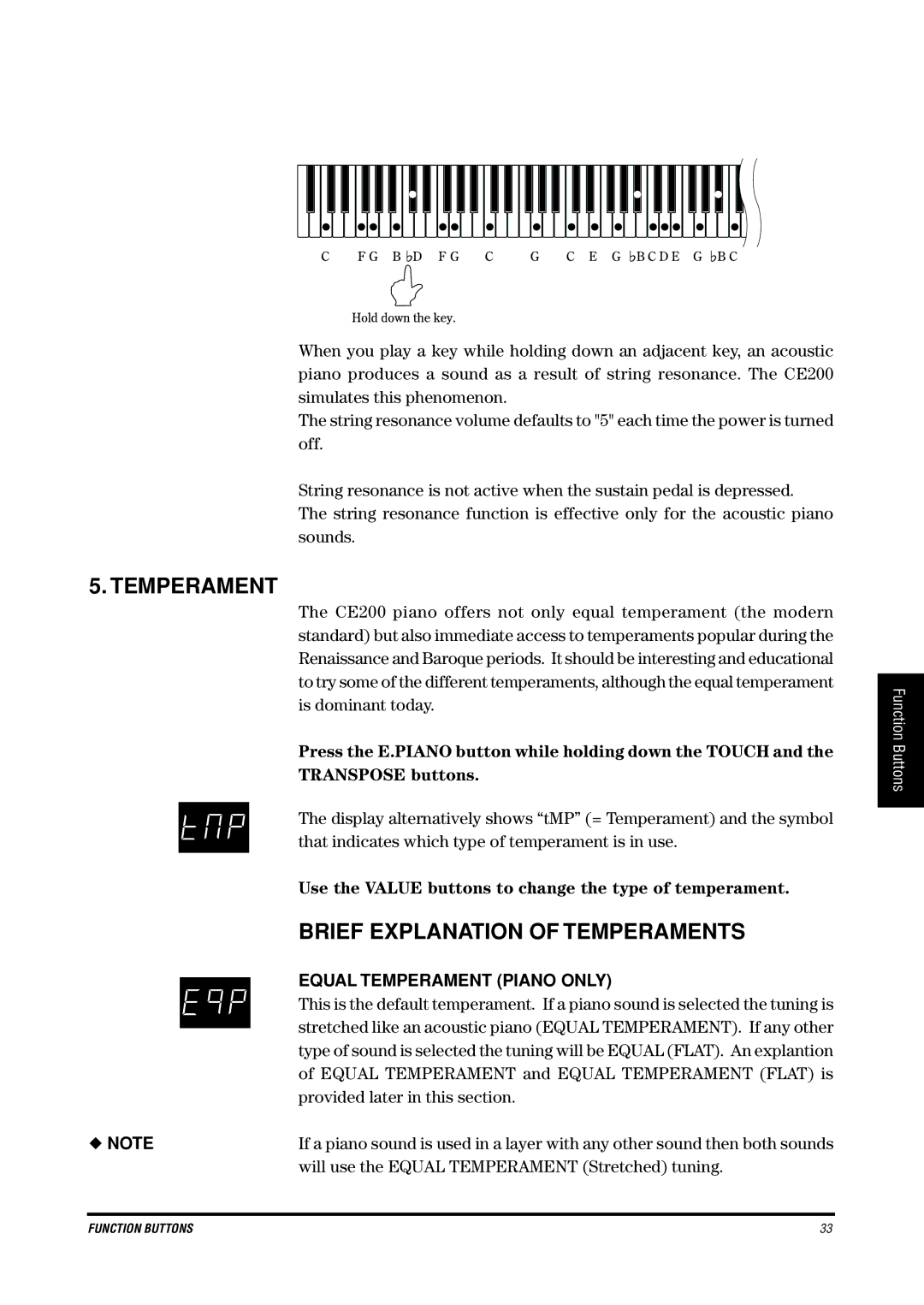
When you play a key while holding down an adjacent key, an acoustic piano produces a sound as a result of string resonance. The CE200 simulates this phenomenon.
The string resonance volume defaults to "5" each time the power is turned off.
String resonance is not active when the sustain pedal is depressed.
The string resonance function is effective only for the acoustic piano sounds.
5. TEMPERAMENT
|
| The CE200 piano offers not only equal temperament (the modern |
|
| standard) but also immediate access to temperaments popular during the |
|
| Renaissance and Baroque periods. It should be interesting and educational |
|
| to try some of the different temperaments, although the equal temperament |
|
| is dominant today. |
|
| Press the E.PIANO button while holding down the TOUCH and the |
|
| TRANSPOSE buttons. |
|
| The display alternatively shows “tMP” (= Temperament) and the symbol |
|
| |
|
| that indicates which type of temperament is in use. |
|
| Use the VALUE buttons to change the type of temperament. |
|
| BRIEF EXPLANATION OF TEMPERAMENTS |
|
| EQUAL TEMPERAMENT (PIANO ONLY) |
|
| |
|
| This is the default temperament. If a piano sound is selected the tuning is |
|
| stretched like an acoustic piano (EQUAL TEMPERAMENT). If any other |
|
| |
|
| type of sound is selected the tuning will be EQUAL (FLAT). An explantion |
|
| of EQUAL TEMPERAMENT and EQUAL TEMPERAMENT (FLAT) is |
|
| provided later in this section. |
◆ NOTE |
| If a piano sound is used in a layer with any other sound then both sounds |
|
| will use the EQUAL TEMPERAMENT (Stretched) tuning. |
Function Buttons
FUNCTION BUTTONS | 33 |
